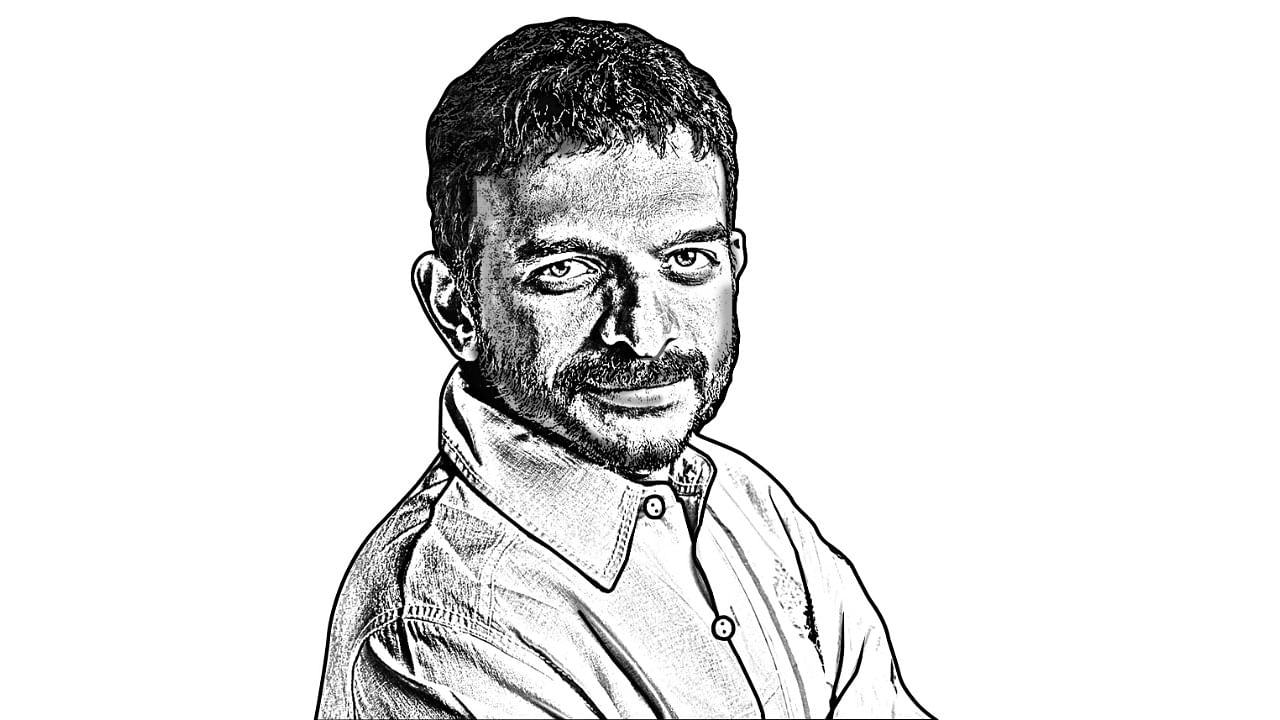
T M Krishna the mind questions, the music moves, the mountains beckon @tmkrishna
Election season is here. Every day, in fact every hour, springs surprises. Politicians jumping ship at will. Parties accepting them with open arms is par for the course. Every individual is weighing his options, grabbing the miniscule opportunity offered, and all parties are playing ball. It is not necessarily the winnability of the new or repeated entrant that makes them accepting. It is as much about optics. How many are shifting in and out. Much like a football game, each party is keeping score. There are hugs and smiles all over. Accusations of crime, corruption, communalism and everything else is forgotten for that minute. It will reappear only when there is an exit in the future.
Then there is the campaigning itself. Candidates lie, make promises that they cannot keep, spew religiously divisive statements, gleefully utter ‘caste-friendly’ remarks and much more. For all this, they will probably get away with just a slap on the wrist. Even that is occasional. In between all this clamour and hustling, political parties speak of reform, social change, economic progress, welfare and also publish a ‘manifesto’. Do people actually read or even follow up on the last? I am not sure.
This is the reality voters watch during every election cycle. It is indeed very difficult for even the naivest citizen to believe he is engaging in a genuine democratic process. Naturally then, voting choices are not made for rational reasons. Caste, language and religion become dominant. Fear of the ‘other’ is seeded and watered into growth by deliberate statements. Those at the bottom of the social table try their best to protect themselves from possible onslaughts, hoping for as many benefits as they can get. As we go up the ladder, each group focuses on securing what they have, refusing to share anything with any other group, especially those below.
Then there are those like yours truly, who belong to the privileged upper middle class and care a damn about any of this! We are socially secure, economically stable, and culturally dominant. Irrespective of who is in power, our lives go on largely uninterrupted. For us, very little has changed for the worse in the past seventy-plus years. All data, social and economic, point to this fact. Which is probably why the voting percentage of this section is always abysmal. Yet, we will be up in arms on social media, cooking up myths, screaming at or trolling those who speak from a position of marginalisation or for the marginalised. We put on the disguise of victimhood, cheat ourselves and bully people, because we have very little at stake.
Why do the marginalised vote? Beyond the obvious fight for a political voice, those who are vulnerable are left with no choice but to hope that their vote can bring about some change, even if it is marginal or incremental. Voting is also the only power that society has offered them without limitation. Not only can they effect change, but can also do so in anonymity. It is largely a safe place. This argument can be challenged, because we have had cases of candidates pointing to communities and accusing them of not voting for them. Despite these anomalies, the voter is able to exercise her right without fear. This is a great quinquennial gift of power. Voting is not just an act of identity assertion, seeking socio-political gain or economic benefits, but also a moment of freedom. A moment when David can topple Goliath. When all Goliaths, irrespective of their social location or political affiliation, are found to be made of the same cloth, the choice becomes intertwined with social identities.
We, the economically privileged, accuse the ‘rest’ of accepting money to vote. I do not fault the voters. When every rupee matters, accepting whatever comes his way is but natural. Social benefits do not trickle down the way they should, and all of us who have so much do so little. If anything, we continue unabated with greed, once again using our power to receive more benefits from the political establishment. We are in no position to judge those who accept a few thousand rupees.
Voters are also very intelligent. Often, they accept money from both or all sides and then vote as per their inclination. During every election, we are reminded of our civic responsibility. For the next five years, many of us are mute. The marginalised are not. They are the ones on the street, asking difficult questions, demanding their rights, and forcing change. We complain that such protests are a nuisance. It is also those who have less power who vote in local body elections. Despite such disregard for democracy, we occupy all spaces of democratic and public discourse. Ironically, we are asked to provide solutions for the ills of our nation!
There needs to be an awakening in those who occupy the middle and upper sections of society. It is our lack of participation and unwillingness to give space, listen and ally with larger society, that is holding democracy back. Deep social realisation and the discarding of our fraudulent victim syndrome has to be the first step. Until we put ourselves through rigorous questioning, elections will come and go, and we will continue to provide seemingly ‘all-knowing’ but incorrect answers. But those who are in need will continue to stand on their own, demanding justice. This is on our conscience.